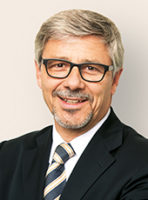Orphan Drugs & Rare Diseases
Wenger Plattner / Switzerland
Key legal info on orphan drugs & rare diseases in Swiss Pharma. Prepared in association with Wenger Plattner, a leading law firm in Switzerland, this is an extract from The Pharma Legal Handbook: Switzerland, available to purchase here for GBP 99.
1. What is the definition of Rare Diseases in your country?
A disease is deemed to be rare if it affects no more than five out of every 10,000 people.
2. Does the designation of ‘Orphan Drug’ exist in your country? (Does it correspond with the definition of Rare Diseases?)
Yes it does. However, the fact that a rare disease affects only a small number of people means that there is little specialist knowledge available. For this reason, it frequently takes years or even decades for the condition to be diagnosed correctly. It is often hard to find what treatments and forms of care are available. The few recognised therapies that exist are often limited to combating the symptoms. The causes of most rare diseases are not yet clear. Consequently, there is still no hope of a cure for the large majority of these rare conditions.
3. What is the regulatory framework for the authorization of an Orphan Drug? (Is this regulatory framework based on Rare Disease status or can it alternatively be based on Orphan Drug foreign status?)
In Switzerland, the designation of ‘Orphan Drug’ is granted to a medical product for human use upon application if the applicant proves that the medical product meets the criteria of Art. 4 paragraph 1 letter adecies of the Therapeutic Products Act (TPA), namely that the medical product serves to detect, prevent or treat a life-threatening or chronically disabling disease that affects no more than five out of 10,000 persons in Switzerland at the time the application is submitted or its active substance has been granted the status of an important orphan medicinal product by another country with comparable drug control. Furthermore, Art. 14 TPA provides for a simplified authorisation procedure for important medicinal products for rare diseases (Orphan Drug). The implementing provisions have been incorporated into the ordinance of the Swiss Agency for Therapeutic Products on the Simplified Licensing of Therapeutic Products and the Licensing of Therapeutic Products by the Notification Procedure (TPLO). A distinction is made in the ordinance between recognition of the status as an important medicinal product for rare diseases (Art. 4 – 7 TPLO) and the authorisation of a medicinal product that has been granted Orphan Drug Status by Swissmedic (Art. 24 – 26 TPLO).
4. Does your country have provisions for relaxed clinical trial/scientific evidence requirements in respect of Orphan Drugs as compared to other drugs?
No. However, the EU created a legal foundation in 1999 in the form of Regulation (EC) No 141/2000. It foresees various measures to promote the recognition and visibility of rare diseases and reinforces collaboration and coordination at EU level. The legal foundation supports the creation of European reference networks and promotes the networking of specialist centres and experts in different countries. It has also created incentives for more research into rare diseases. Moreover, rare diseases are one of the priorities within the EU Framework Programme for Research and Innovation.
5. Is there an expedited pathway for Orphan Drugs?
There is a simplified authorisation procedure for Orphan Drugs in Switzerland (see question 3). Therefore, Switzerland knows an expedited pathway for Orphan Drugs in matters of authorisation.
6. Are foreign marketing authorizations recognized in your jurisdiction for Orphan Drugs? If yes, marketing authorizations from which countries are recognized?
Yes, foreign marketing authorizations for Orphan Drugs are recognized in Switzerland. If a drug or process is already approved in another country with comparable drug control, the results of the tests conducted for it are taken into account (Art. 13 TPA). A list of countries which are recognized does not exist, rather there must be an individual examination in each case if the foreign authorizations of a drug can be recognized in Switzerland. The key element here is whether the foreign country has a comparable drug control.
7. Can Orphan Drugs be reimbursed? If so, is there a specific reimbursement procedure for Orphan Drugs?
Orphan drugs are reimbursed either in accordance with the list of pharmaceutical specialities or in accordance with Art. 71b Health Insurance Ordinance (HIO) under the same conditions as for off-label use. Consequently, the medicine must be used to treat a life-threatening disease, and this must be compatible with the objective of protecting health. In addition, use of the medicine must be expected to lead to major therapeutic progress, and there must be no other comparable medicine available. These conditions state that the cost of medicinal products, that are not on the list of pharmaceutical specialities and used outside the registered indications, will also be reimbursed. However, this is only the case if the disease may have a fatal outcome or lead to severe or chronic problems for the insured person, and there are no therapeutic alternatives.
8. How are the prices of Orphan Drugs regulated?
In Switzerland, as in most other countries, the authorities determine the prices of medicines and review them at regular intervals. The prices of medicines reimbursed by the statutory health insurance providers are controlled by the Federal Office of Public Health (FOPH). In order to determine the price of a medicinal product, the FOPH first considers the cost of therapy with products authorised to treat the same disease. This process is known as internal reference pricing (IRP). It then compares the prices of products in other countries (known as external reference pricing, or ERP) in line with the recommendations of the Federal Medicines Commission (FMC). For external reference pricing, prices are compared with those in countries with a pharmaceutical industry economically comparable to that of Switzerland’s.
Health insurance providers only reimburse the cost of a medicine prescribed by a doctor under the provisions of statutory health insurance if the FOPH has included it in the list of pharmaceutical specialities (LS). The medicine is examined for safety, efficacy and quality before the FOPH can include it in the LS. The authority responsible for this review is Swissmedic, the Swiss Agency for Therapeutic Products. Before a medicine can be included in the LS, Swissmedic considers not only whether it is effective and appropriate in the context of social health insurance, but also whether it is cost-effective (known as a WZW assessment, from the German words for effectiveness, appropriateness and cost-effectiveness). The decision on inclusion is taken by the FOPH at the recommendation of the FMC. If medicines no longer fulfill the WZW criteria, their prices are adjusted, their use is restricted or, in certain cases, the FOPH removes them from the LS.
9. In case of reference price based on a basket of countries, what countries are included?
There is no basket of countries on which the reference price can be based on in Switzerland. However, for external reference pricing, prices are compared with those in countries with a pharmaceutical industry economically comparable to that of Switzerland’s.
10. Have there been any significant legal/judicial developments in relation to Orphan Drugs in your country?
No, there are no significant legal/judicial developments in relation to Orphan Drugs at the moment.
11. Are there proposals for reform or significant change to the regulation of Orphan Drugs? If yes, when are they likely to come into force?
There have been two important postulates (Nr. 10.4055 and Nr. 11.4025) from the Swiss Federal Assembly concerning Orphan Drugs:
- With the postulate 10.4055 “National strategy for improving the health situation of people with rare diseases”, the Federal Council is mandated to develop, in collaboration with organizations, specialists and the cantons a national strategy for rare diseases. The aim is to ensure that patients with rare diseases receive the same level of medical care throughout Switzerland. This includes timely diagnosis, appropriate treatment, and equal access to effective, evidence-based to effective, evidence-based therapies and medicines. The postulate was passed on March 18, 2011.
- With the postulate 11.4025 “Hardship Commission Health” the Federal Council is instructed to examine whether a Hardship Commission could be set up for the health sector, analogous to the Hardship Commission in the migration sector. Specifically, this Hardship Commission Health should cover cases in which it is disputed whether the insurance company should cover the expensive treatment of rare diseases. This postulate was passed on December 23rd, 2011.
Considering these two postulates, the Swiss Federal Council drafted a report regarding the legal basis and financial framework to ensure care in the field of rare diseases in February 2021. The report outlines the specific challenges faced by rare diseases and orphan drugs.





























































